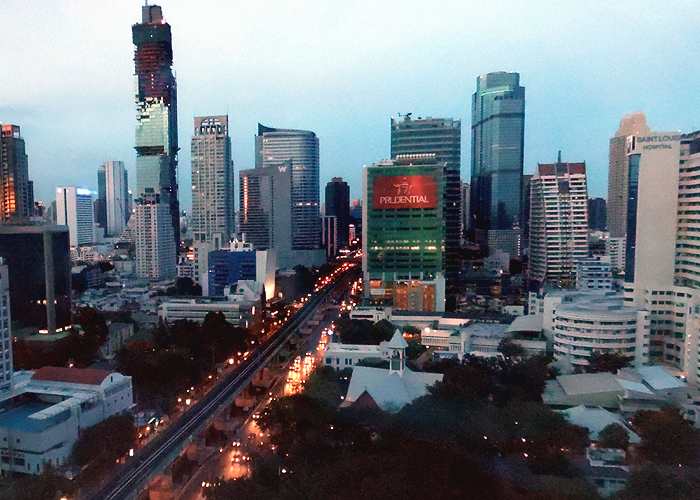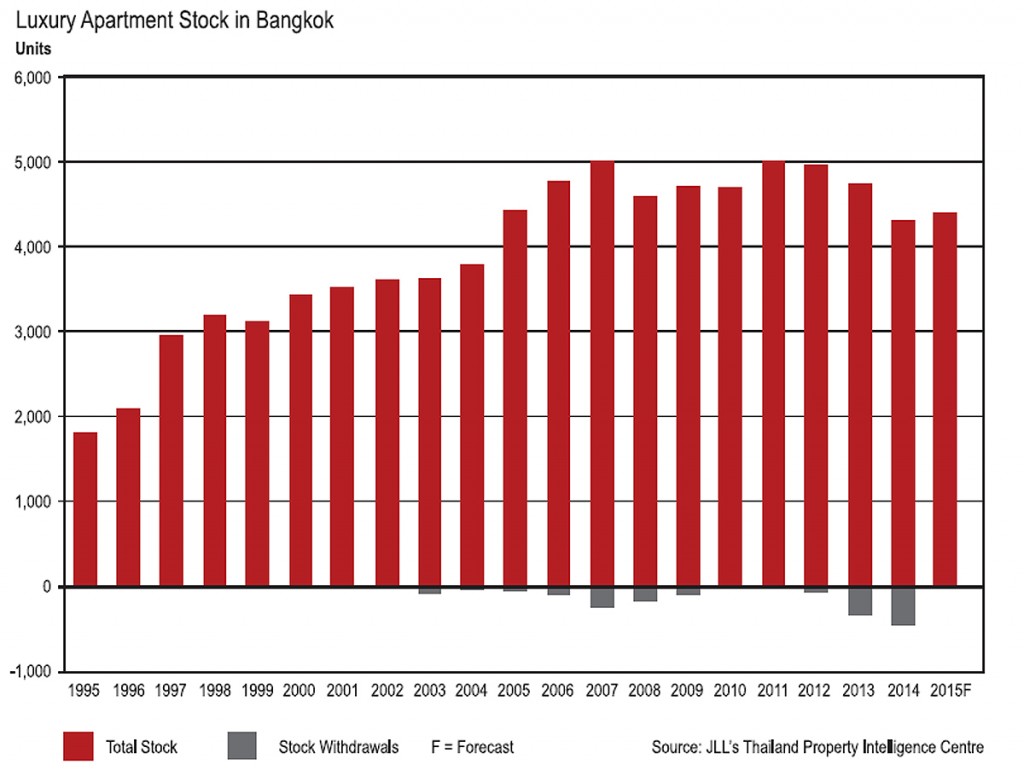It is a fact that while the supply of all condominiums in Bangkok has grown rapidly over the past years, the number of luxury apartments has been declining steadily.
JLL, in its latest research report, expects that decline to continue.
According to the real estate firm, with a wider variety of products, amenities and locations the condominium market has to offer, traditional tenants, most of whom are expatriates, are increasingly turning away from luxury apartments.
Along with shifting occupier preferences, higher land costs have made apartment development less attractive, with more apartments converted into serviced apartments and condominiums, according to JLL.
Andrew Gulbrandson, Head of Research and Consultancy at JLL, said “Since 2008, luxury apartment supply in Bangkok has contracted.
“While very few new developments were added, many luxury apartments have been converted to serviced apartments, which typically provide daily amenities, such as cleaning and housekeeping services, while also being available for short-term stays. At the same time, some luxury apartments have been refurbished and then marketed as freehold condominiums.”
With green field condominium developments and refurbished and renovated luxury apartments converted to condominiums yielding returns double those of existing luxury apartments, JLL expects the future supply of luxury apartments to be limited.
This does not mean, however, that luxury apartments will soon become irrelevant as demand will continue, it added.
“Luxury apartments have a number of advantages over rental condominiums,” said Gulbrandson.
He explained that most of the luxury apartments are located in downtown and commercial areas, primarily in the central Bangkok and the central east sub-markets that include Sathorn, Silom and Sukhumvit areas.
These locations have traditionally offered tenants good accessibility and an abundance of amenities. In addition, with much of the existing luxury apartment stock built before the 1997 Asian Financial Crisis, these developments typically feature much larger living spaces than more recently built condominiums.
JLL’s research suggests the demand for three-bedroom units from large expatriate families has been increasing steadily over time.
“Most of the luxury apartments also offer relatively larger common space and full recreational facilities. These amenities include large swimming pools, fitness/sauna rooms and tennis courts, which are not typically provided in many new condominium projects. On top of these advantages, these luxury apartments also offer more competitive rents on a per square metre basis than the newer condominiums,” Gulbrandson continued.
For these reasons, JLL believes luxury apartments will remain relevant although they may not experience the same heights of the 1980s and 1990s.
Andrew Batt, International Group Editor of PropertyGuru Group, wrote this story. To contact him about this or other stories email andrew@propertyguru.com.sg






